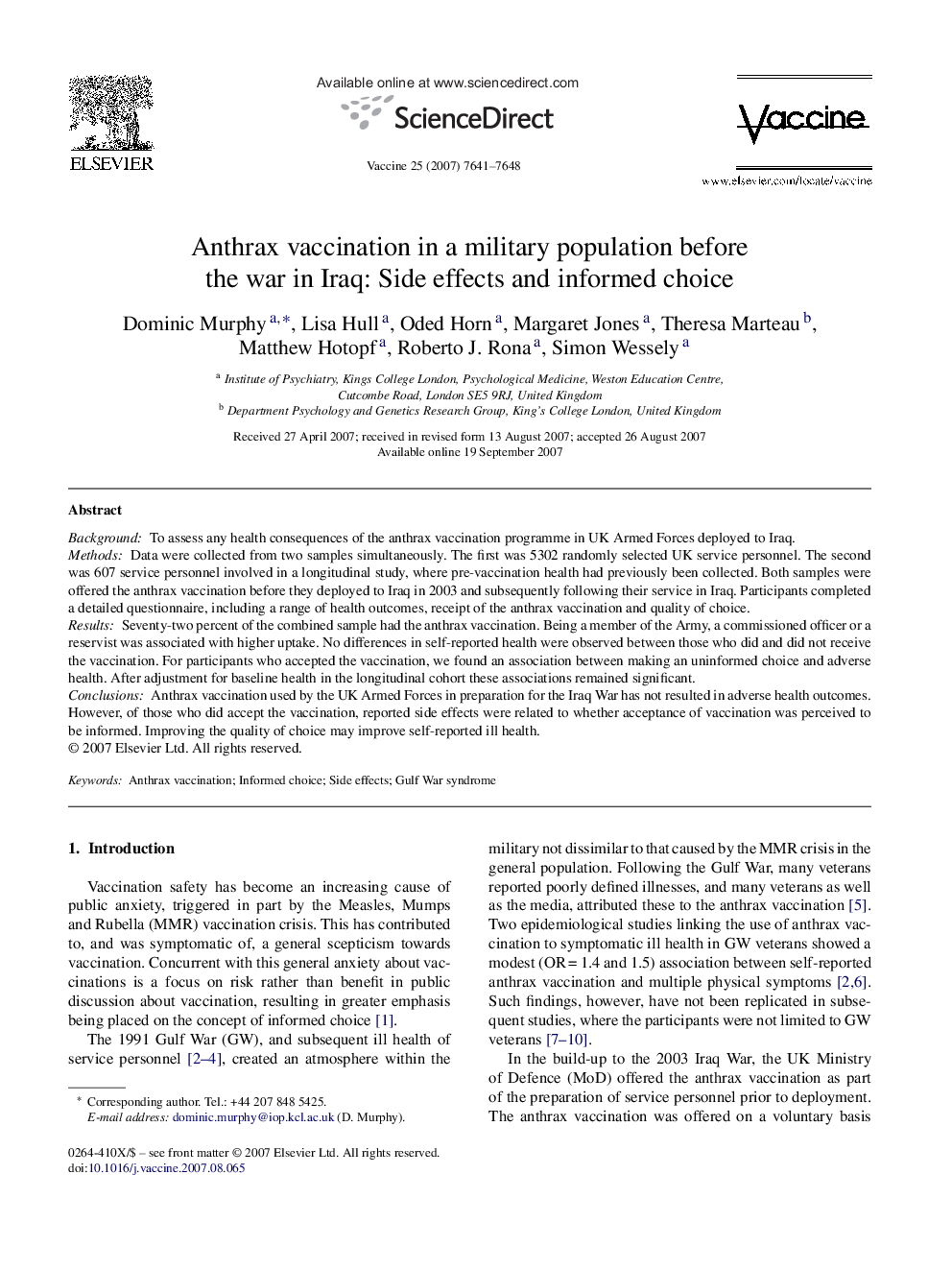| Article ID | Journal | Published Year | Pages | File Type |
|---|---|---|---|---|
| 2409142 | Vaccine | 2007 | 8 Pages |
BackgroundTo assess any health consequences of the anthrax vaccination programme in UK Armed Forces deployed to Iraq.MethodsData were collected from two samples simultaneously. The first was 5302 randomly selected UK service personnel. The second was 607 service personnel involved in a longitudinal study, where pre-vaccination health had previously been collected. Both samples were offered the anthrax vaccination before they deployed to Iraq in 2003 and subsequently following their service in Iraq. Participants completed a detailed questionnaire, including a range of health outcomes, receipt of the anthrax vaccination and quality of choice.ResultsSeventy-two percent of the combined sample had the anthrax vaccination. Being a member of the Army, a commissioned officer or a reservist was associated with higher uptake. No differences in self-reported health were observed between those who did and did not receive the vaccination. For participants who accepted the vaccination, we found an association between making an uninformed choice and adverse health. After adjustment for baseline health in the longitudinal cohort these associations remained significant.ConclusionsAnthrax vaccination used by the UK Armed Forces in preparation for the Iraq War has not resulted in adverse health outcomes. However, of those who did accept the vaccination, reported side effects were related to whether acceptance of vaccination was perceived to be informed. Improving the quality of choice may improve self-reported ill health.
